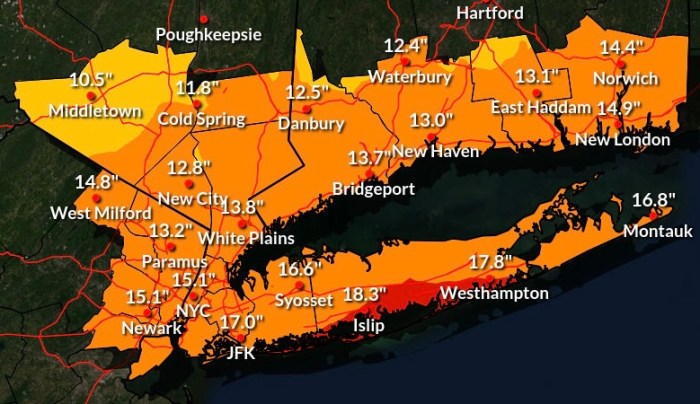On May 2, the Fire Island–based art nonprofit BOFFO received a letter from the National Endowment for the Arts (NEA) stating that the $45,000 grant awarded to them in November 2024 had been withdrawn.
BOFFO, which provides a platform for LGBTQ+ artists by facilitating initiatives such as artist residencies, exhibitions, digital commissions, and experiences, had been planning to use the funds to support its summer residency program in the Fire Island Pines.
The NEA officially announced BOFFO’s successful application in January 2025. As requested by the NEA, BOFFO also publicized the grant at this time. Shortly thereafter, they received notice from the NEA that the award had been frozen and was under review.
“This entire chain of events has, of course, been very frustrating, distressing, and, frankly, scary for us,” said a representative for BOFFO in a written statement. They added that grant applications, given the amount of thought and professional acumen required to complete them successfully, are a significant use of resources for a small organization. “The government is sending a clear message that they do not respect our time,” they said.
BOFFO is among dozens of institutions that have received abrupt notices of retroactively canceled NEA allocations. This move came immediately after President Trump proposed eliminating the agency in his next budget.
“The NEA is updating its grantmaking policy priorities to focus funding on projects that reflect the nation’s rich artistic heritage and creativity as prioritized by the president,” the letters read. “Consequently, we are terminating awards that fall outside these new priorities.”
Created by Congress as an independent agency in 1965, the NEA is a sub-agency of the National Foundation on the Arts and the Humanities and serves as the largest funder of arts and arts education in the U.S. Trump’s proposal also included eliminating two of the NEA’s sister agencies: the National Endowment for the Humanities and the Institute of Museum and Library Services.
The recent funding rollback follows Trump’s statement shortly after his inauguration in January that funds will not be used to promote “gender ideology,” which the White House website defines as, “replac[ing] the biological category of sex with an ever-shifting concept of self-assessed gender identity, permitting the false claim that males can identify as and thus become women and vice versa, and requiring all institutions of society to regard this false claim as true.” “This is a calculated, coordinated attack,” BOFFO stated. “The government is sending a clear message that they do not want to cultivate ways of understanding that they are not in control of.”
The Fire Island community, with its rich legacy of queer artists, is in a particularly vulnerable position due to the recent funding cuts. Tony Award–winning theater Goodspeed Musicals lost a $60,000 NEA grant for the production of Joriah Kwamé’s Little Miss Perfect, a Barn on Fire alumni show. Presented by the Fire Island Pines Arts Project and New York Theatre Barn, Barn on Fire is a summer residency for the development of musical theater.
The National Queer Theater, which hosts the fully funded youth theater residency Rainbow Connection in Cherry Grove, lost a $20,000 NEA grant to support its annual Criminal Queerness Festival. Held during Pride Month, the festival highlights the work of queer artists from countries where queerness is criminalized or censored. This year’s festival is set to honor the work of artists from Ukraine and Eastern Europe.
Other institutions across the country affected by the funding cuts include A.I.R. Gallery, an artist-run organization in Brooklyn that highlights the work of women and nonbinary artists, which lost $30,000 granted initially by the NEA to support its programs; the Massachusetts Museum of Contemporary Art (MASS MoCA), from which the NEA rescinded a $50,000 grant to facilitate a solo exhibition of queer Indigenous artist Jeffrey Gibson; and the Museum of Contemporary Art Denver, which was set to receive $40,000 to support the exhibition Movements Toward Freedom, exploring both the power and vulnerability of bodily expression in contemporary life through expanded notions of performance and movement. While not all organizations are as fortunate, BOFFO made up for 15 percent of lost funds through community donations within a few days of the announcement.
“That said, it’s alarming that we’re now being put in the position where our community has to pick up the slack,” a representative for BOFFO commented. “This is very troubling for the future of freedom of speech in this country.”
Several private organizations have stepped forward to fill the gap left by the NEA’s suspension of funds. The Andy Warhol Foundation for the Visual Arts and the Helen Frankenthaler Foundation have announced plans to distribute $800,000 across 80 visual arts programs previously promised NEA support. Some organizations and initiatives that do not receive outside support, however, will inevitably shutter.
Oskar Eustis, artistic director of the Public Theater in New York and a leader of the Professional Non-Profit Theater Coalition, told the Washington Post in a statement, “In an oligarchy, the rich people are the patrons of culture and art; in a monarchy, the king or queen [is] the patron of art; and in democracy, it’s completely appropriate for the people’s government to be patrons of art… In a democracy, the NEA is there to say, ‘The people are going to support the art.’ And I shudder if that goes away.”
As BOFFO’s summer 2025 performance festival, scheduled for July 12, approaches, the organization continues to push forward. On May 18, an artist talk featuring BOFFO artist-in-residence Creighton Baxter at Whyte Hall kicked off the 2025 season, followed by a presentation of her work on May 31.
“The explicit purpose of the granted funds was to ‘support an artist residency.’ Nothing about our mission has changed,” said a BOFFO spokesperson. “Because our residency supports queer people, trans people, people of color, and people who are outspoken, they have decided that we do not deserve a voice.”
































